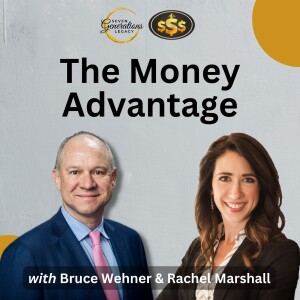
When searching for an Infinite Banking policy, a common question is, which company will give me the best dividend rate? Today we dive into answering why dividend rates don't matter. The perception is that the highest dividend rate will turn out to be the best policy performance over time, ending up with the highest growth in your policy, and giving you the greatest financial benefits.
https://www.youtube.com/live/kKpzquetov4
But this is the wrong approach to building capital and becoming your own banker by using Infinite Banking to build growing, accessible capital you can use.
Today we bust common misconceptions and highlight the various factors that influence your policy's dividends—from the guaranteed interest rate to the financial strategies of insurance companies—arming you with the knowledge to make savvy, long-term financial decisions.
We also break down the all-important task of selecting the right insurance company for infinite banking. With a keen eye on the practices of various insurance companies, we emphasize the role of long-term stability and customer-focused service. Understand why the initial illustrations aren't the be-all and end-all, and learn the importance of a company’s conservative financial practices in sustaining your policy’s performance over time.
Finally, we tackle the dynamic nature of dividend rates and how infinite banking principles can help you maximize the compounding growth of your cash value, even when borrowing against your policy. This episode is packed with practical advice on implementing infinite banking now to ensure your financial assets are secure and growing for future generations. Don’t miss out on these invaluable insights that go beyond the numbers to profoundly impact your financial future.
To find out why dividend rates don't matter, and see how to avoid the dividend rate comparison trap that prevents you from having the greatest success with Infinite Banking... tune in today!
Planning for Long-Term SuccessWhat Are Dividends?What Does the Declared Dividend Mean?Dividends and Contractual IncreasesWhy Dividend Rates Don't MatterBook A Strategy Call
Planning for Long-Term Success
When you engage in the Infinite Banking Concept, it’s important to remember that you’re seeking long-term success—over your lifetime, but also for generations to come. Dividends can be a major part of that, but not in the same way you’ve been trained to think about them in the stock market. Dividends in the life insurance realm work a bit differently, and they may seem low to you if you’re used to chasing high rates of return.
[4:32] “[The ‘Seven Generations Legacy’ is] this idea and this concept of being able to create something that you can benefit seven generations ahead. And the thinking required to do something of that proportion means that you have to put systems in place that you yourself cannot fully control. You’re putting them in motion, you’re being the impetus, the starting point, the spark that starts something.”
What Are Dividends?
The technical definition of a whole life insurance dividend is a refund of excess premium. This is often used to detract from the value of dividends because it’s “just money that you overpaid.” However, this is just a definition for IRS classification and is not the reality of dividends if you actually examine a life insurance policy. Because once you examine a life insurance policy, you’ll see that those designed for cash value growth will eventually have a cash value that exceeds all premiums ever paid to the policy. So how could you be overpaying?
Dividends are a portion of the company's profits that you receive as a partial owner of the mutual company you have a policy with. The company uses income from your premium payments to make investments into assets like bonds. When the company profits, they must share those profits with policy owners, and that comes in the form of a dividend.
view more
More Episodes
Non-Food Franchising, with Jon Ostenson
 2023-04-10
2023-04-10
 2023-04-10
2023-04-10
Becoming Your Own Banker, Part 1
 2023-04-03
2023-04-03
 2023-04-03
2023-04-03
How to Pay Less Tax
 2023-03-27
2023-03-27
 2023-03-27
2023-03-27
Money is Spiritual, with Rabbi Daniel Lapin
 2023-03-06
2023-03-06
 2023-03-06
2023-03-06
18 Summers, with Jim Sheils
 2023-02-20
2023-02-20
 2023-02-20
2023-02-20
10 Reasons You Need Life Insurance
 2023-02-13
2023-02-13
 2023-02-13
2023-02-13
The 5 Rules of IBC, with David Stearns
 2023-01-09
2023-01-09
 2023-01-09
2023-01-09
Tax-Free Retirement is a Bad Idea
 2023-01-02
2023-01-02
 2023-01-02
2023-01-02
012345678910111213141516171819
Create your
podcast in
minutes
- Full-featured podcast site
- Unlimited storage and bandwidth
- Comprehensive podcast stats
- Distribute to Apple Podcasts, Spotify, and more
- Make money with your podcast
It is Free
- Privacy Policy
- Cookie Policy
- Terms of Use
- Consent Preferences
- Copyright © 2015-2024 Podbean.com





